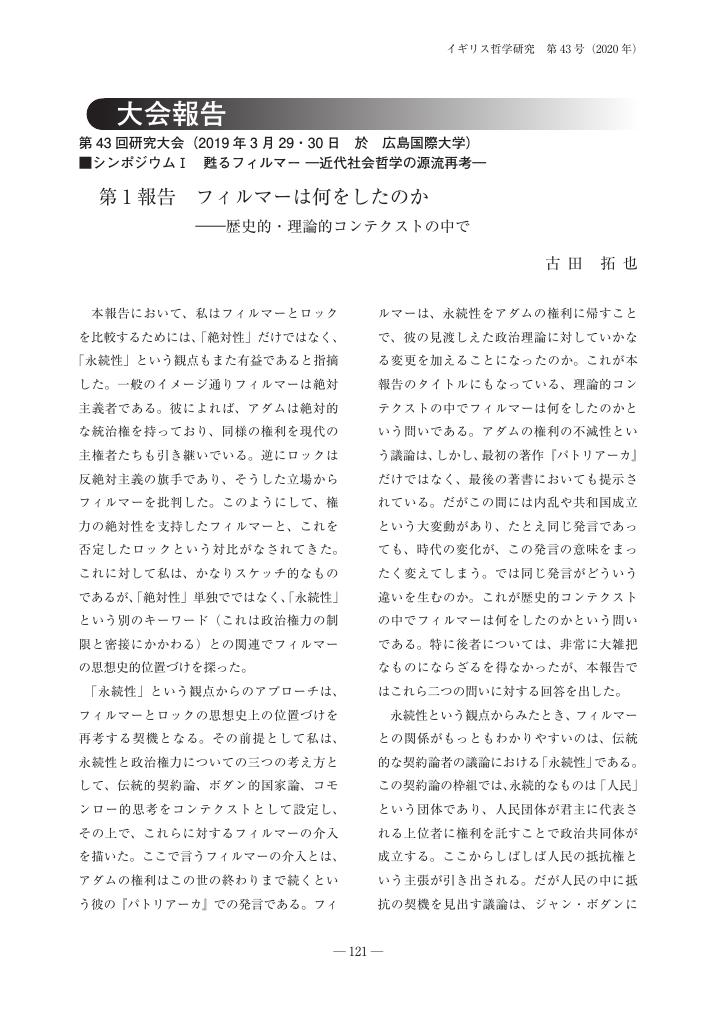3 0 0 0 OA ジョン・ロックの哲学
1 0 0 0 OA 大会報告
1 0 0 0 OA ロックにおける暗黙の同意 ―明示の同意との区別について―
- 著者
- 小城 拓理
- 出版者
- 日本イギリス哲学会
- 雑誌
- イギリス哲学研究 (ISSN:03877450)
- 巻号頁・発行日
- vol.35, pp.21-35, 2012-03-20 (Released:2018-03-30)
- 参考文献数
- 42
Lockeʼs account of the tacit consent presents many problems that scholars have not solved. One of these problems is whether one may become a member of a commonwealth by oneʼs tacit consent or not. Most interpreters think that the tacit consent is not condition of the membership. But this interpretation is not satisfactory, since Locke argues at times not only the express consent but also the tacit consent can make one to be the member. In this paper I try to offer a new solution for this problem. I argue that, firstly, the tacit consent commonly can be inferred as the express consent and, secondly, Pufendorf who has much influence on Locke admits that the tacit consent often plays the same role of the express consent, then Locke himself must accept Pufendorfʼs idea. Therefore, one may become the member by oneʼs tacit consent.
1 0 0 0 OA ロックの自然法について
- 著者
- 小城 拓理
- 出版者
- 日本イギリス哲学会
- 雑誌
- イギリス哲学研究 (ISSN:03877450)
- 巻号頁・発行日
- vol.32, pp.27-39, 2009-03-20 (Released:2018-03-30)
- 参考文献数
- 23
Some commentators say that Locke late in his life finds it impossible to discover the law of nature through the reason and turns instead to the revelation which is in the opposite of the reason. In this paper I try to refute such view. Locke holds that there are three laws to judge people’s actions. They are the Divine Law,the Civil Law and the law of Opinion or Reputation (hereafter LOR). Locke thinks that LOR coincides with the Divine Law which means the law of nature. So we can deduce the content of the law of nature from LOR through the reason. Therefore,Locke does not abandon the idea of law of nature discovered through the reason.

